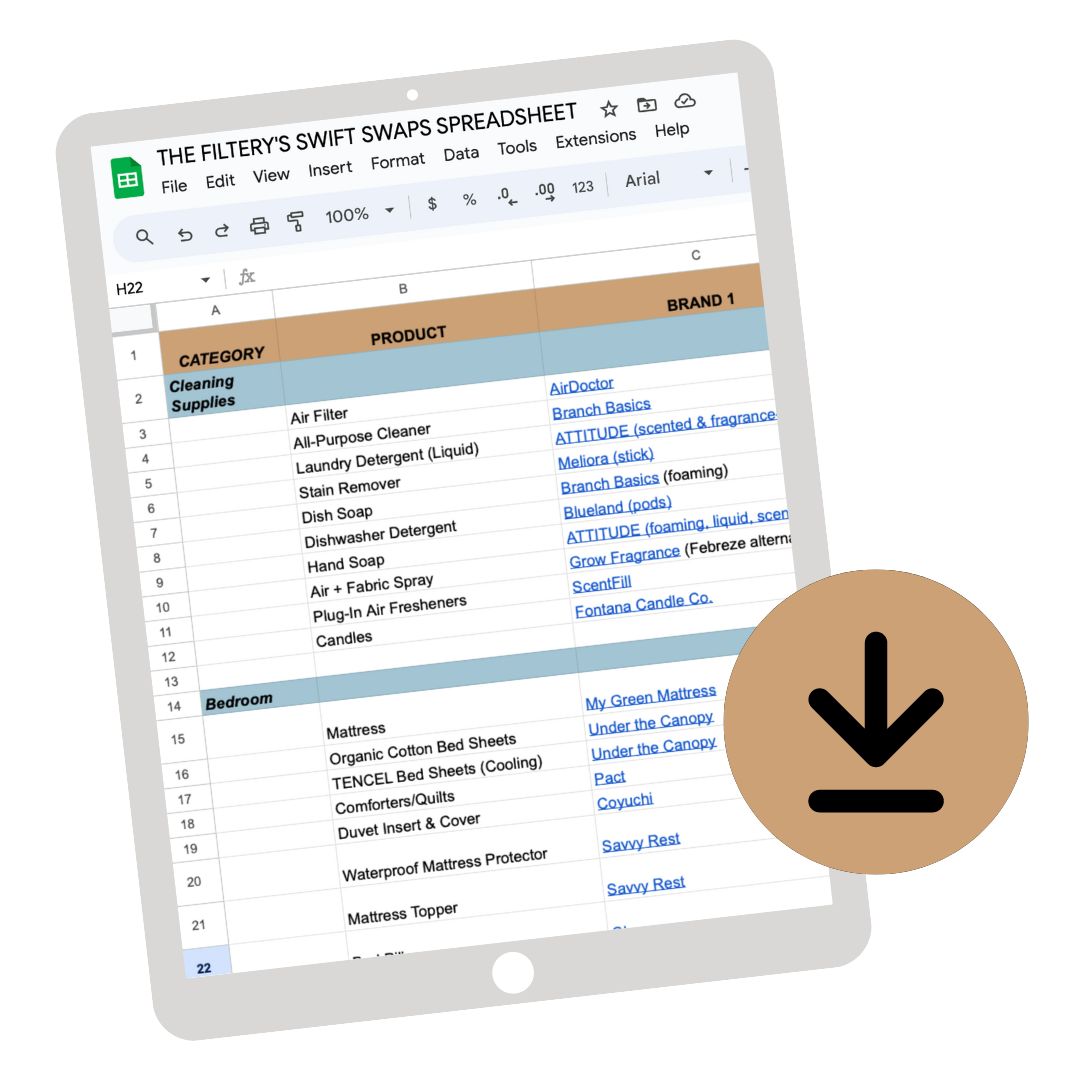When it comes to bodily functions, the vagus nerve is a big deal. This widespread nerve that stems from your brain and branches out into numerous organs has a role to play in everything from digestion and hunger to positive mental health. With knowledge of the vagus nerve and just how important this cranial nerve is in physical and mental health, people are naturally on the search for ways to support it. The usual curiosity is, are there foods that stimulate vagus nerve functions?
The bigger question is, does food even play a role in vagus nerve stimulation? In some ways, yes, there are foods good for vagus nerve stimulation, but maybe not how you would expect. Let’s get a look at the vagus nerve, vagus nerve function in the body, why this nerve should be functioning well, and how you can stimulate the vagus, with or without food.
Table of Contents
- What Is the Vagus Nerve?
- Why Is It Important To Stimulate the Vagus Nerve?
- What Happens If the Vagus Nerve Is Damaged?
- How Is the Vagus Nerve Damaged?
- Can Vagus Nerve Damage Be Repaired?
- What Is the Vagus Nerve’s Role in the Gut-Brain Connection?
- What Foods Stimulate the Vagus Nerve?
- Eat Your Fish To Stimulate The Vagus Nerve
- Try Kefir or Kombucha
- Get in Some Spinach and Leafy Greens
- Work Poultry into Your Nutrition Plan
- How to Improve Gut-Brain Communication via the Vagus Nerve
- Deep Breathing Exercises
- Intermittent Fasting
- Chewing Gum
- Engaging the Larynx
- Cough Or Contract Stomach Muscles
- Laugh
- Give Yourself A Chill
- Other Potential Vagal Stimulators
- Benefits of Vagus Nerve Stimulation
- Final Thoughts on the Best Foods for Vagus Nerve Stimulation
What Is the Vagus Nerve?
Before looking at the best foods for vagus nerve stimulation, it’s best to get a closer look at the nerve itself. The vagus nerve is a cranial nerve that extends from the brain stem all the way into the colon. In fact, the word “vagus” actually translates to “wandering” in Latin, which is perfectly fitting for a nerve that seems to wander through and to so many parts of the body. While the vagus nerve is only 1 of 12 cranial nerves, this particular nerve is unique because it is associated with both sensory and motor functions.
What Function Does the Vagus Nerve Have in the Body?
The dual-action of serving both sensory and motor functions means the vagus nerve plays a role in quite a few bodily functions. The nerve itself wanders throughout the human body and is connected to the pharynx, heart, gastrointestinal system, and even the tongue. The vagus nerve function is associated with:
- Taste
- Digestion
- Heart rate
- Speech
- Swallowing
- Respiratory rate
Researchers currently believe that the major organs send a wealth of sensory information to the brain, and the vagus nerve is thought to be a key player in that action. Another especially noteworthy function of the vagus nerve is inducing a full feeling while eating. Some research has indicated when certain receptors of the vagus nerve are damaged, patients experience hyperphagia, which is essentially drastically increased food intake.
What Is the Parasympathetic Nervous System?
The parasympathetic nervous system (PNS) regulates the “rest-and-digest” functions within the body. Essentially, the PNS steps in and handles things when the body needs to relax, rest, and digest, which is the opposite of the “flight-or-fight” response that kicks in amid stressful situations.
The parasympathetic nervous system settles respiration, stabilizes the heart rate, and then encourages digestion. In addition, the parasympathetic nervous system seems to have an influence on the brain’s limbic system, which is where we process emotions. The vagus nerve happens to be the primary component of this important bodily system.

Why Is It Important To Stimulate the Vagus Nerve?
Vagus nerve stimulation is thought to increase the vagal tone index, which is linked to a litany of aspects of both psychological and physical well-being. For example, people with low vagal tone indexes may be more at risk for bodily inflammation, depression, heart problems, negative moods, and even stroke. Some psychologists believe that the vagal tone index is intertwined with a positive feedback loop that encourages good physical health, positive social interactions, and even positive emotions.
What Happens If the Vagus Nerve Is Damaged?
Vagus nerve damage can and does happen, and the potential symptoms related to that damage can be pretty wide in scope because the nerve is involved with so many areas of the body. Damage to the vagus nerve may lead to:
- Lacking gag reflex
- Ear pain
- Unusual heart or blood pressure rhythm
- Decrease in stomach acid production
- Bloating or pain in the abdomen
- Nausea/vomiting
- Difficulty speaking or voice changes
- Drastic changes in appetite
- Obesity
Vagus nerve damage can also lead to gastroparesis, which prevents the gut from doing what it should in order to empty the contents of the stomach. Vasovagal syncope is also something that can occur with vagus nerve damage. Essentially, this makes the vagus nerve overreact, so an individual may experience extremely slow heart rate or low blood pressure with seemingly ordinary things, such as standing for a long period or exposure to heat.
Body
Is Microwave Popcorn Healthy or Bad for You?
It turns out, most microwave popcorn comes with chemicals that are known to cause long-term health problems in humans. Learn about what those chemicals are, and which are the healthiest popcorn brands.
How Is the Vagus Nerve Damaged?
The vagus nerve can be damaged in several ways, but the most common cause of damage is some type of illness or disease, or surgery. For example, people who have diabetes or undergo surgery on the small intestine or stomach may experience damage to the vagus nerve. Researchers often speculate that high stress levels over a long period of time may also cause some damage to the vagus nerve. Since the vagus nerve works hard to restabilize the body after a fight-or-flight response, repeated stress may put undue strain on the nerve and the PNS.
Can Vagus Nerve Damage Be Repaired?
The vagus nerve may be repaired depending on the extent of the damage. Stimulation of the vagus nerve may help encourage a higher vagal nerve index. However, if the nerve has been completely disrupted, due to surgery or otherwise, the nerve may or may not regenerate. There is actually a controversial clinical trial on cryoablation of the vagus nerve, which examines whether a fully damaged vagus nerve will regenerate in a more functional way after freezing the nerve.

What Is the Vagus Nerve’s Role in the Gut-Brain Connection?
The gut-brain connection simply describes the fact that the brain has a direct effect on the gut and vice versa. Consider how thinking about food can suddenly lead to a growling stomach, or how feeling anxious or sad may trigger hunger or lost appetite, or even nausea or diarrhea. The vagus nerve naturally could be linked to the digestive system.
The fact is, the GI tract is actually sensitive to what you are feeling, and the gastrointestinal system and brain are undeniably connected. The vagus nerve is involved with this connection as this nerve is responsible for carrying signals between the digestive system and the brain. As an example of proof, people who have conditions like irritable bowel syndrome or Chron’s disease tend to have reduced vagal nerve tone and vagus nerve activity. This intrinsic action of the vagus nerve within the gut and brain is why people naturally look for foods that stimulate vagus nerve receptors.
What is the Enteric Nervous System (ENS)
The ENS controls the functions of the gastrointestinal tract and is sometimes referred to as the body’s second brain. This system is part of the autonomic nervous system, and it is made up of several neurons laid out in a mesh-like fashion within the intestines. The ENS is directly in control of things like gut flow/bowel motility, blood flow, and even nutrient absorption. While this may sound like a simple thing, the ENS has an incredible job to do.
Researchers claim that if digestion of our food required our own thinking processes, we wouldn’t have time for anything else because the job is so complicated. Even though the ENS is capable of operating without the brain, the system relies on parts of the vagus nerve.
What is the Central Nervous System (CNS)
The CNS, which consists of the brain and spinal cord, controls the bulk of bodily and mental functions. Essentially, it is the CNS that controls emotions, thoughts, movements, body temperature, heart rate, and even the release of certain hormones. The primary organ of the CNS is undoubtedly the brain, but the brain has several regions, each seemingly responsible for different or unique functions.
One part of the brain, the medulla oblongata, is where the vagus nerve stems from. This area of the brain is known to be involved in a lot of involuntary functions, such as maintaining blood pressure, breathing, and even sneezing.

What Foods Stimulate the Vagus Nerve?
Foods good for vagus nerve stimulation are a bit hard to find simply because the whole food doesn’t actually interact with the vagus nerve. Instead, the components in that food may offer some form of vagus nerve support or stimulation. With that being said, here are some foods good for vagus nerve stimulation in a round-about way because of the nutrients those foods contain.
Eat Your Fish To Stimulate The Vagus Nerve
Fish contains eicosapentaenoic acid (EPA) and docosapentaenoic acid (DEA), which are both long-chain omega-3 fatty acids. These fatty acids can be especially valuable to your body and your cardiovascular system, but they may also help with vagus nerve function by lowering the heart rate and supporting circulation. In studies of people with depression and congestive heart failure, supplementing with EPA and DEA seemed to improve their symptoms of depression.
Try Kefir or Kombucha
Probiotics are well-known for encouraging a healthy gut and digestive tract, which means they may also help with vagus nerve activity due to the brain-gut connection. Probiotics are found in several foods like yogurt or kimchi, but the two with the most abundant levels of probiotics include kefir and kombucha. Animal studies suggest that probiotics helped to reduce stress hormones in the blood, but that reduction did not occur if the vagus nerve was cut. If you don’t like fermented foods, you can always try a high-quality probiotic like Seed.
Get in Some Spinach and Leafy Greens
Leafy greens like spinach and kale are high in tryptophan, which is one of the essential amino acids that your body needs. Tryptophan must be obtained through your diet and helps to control the inflammatory response in the gut. With less inflammation in the gut, the vagus nerve may be able to send and receive nerve impulses easier.
Work Poultry into Your Nutrition Plan
Poultry is a good source of zinc, which is a mineral that can be lacking in the typical diet. In animal studies, a zinc-deficient diet was given to the animals for three days. Researchers noted that the diet seemed to increase vagus nerve stimulation. Therefore, if you don’t get a lot of zinc in your diet, vagus nerve tone may be less than it should be. Other good sources of zinc for non-meat eaters include chickpeas, almonds, and fortified breakfast cereals.
Body
Best (Online!) Organic & Natural Food Stores for 2024
If you’re looking for natural food stores that deliver everything from non-perishables and snacks to meat and produce, here are the best places to shop.
How to Improve Gut-Brain Communication via the Vagus Nerve
While foods good for vagus nerve stimulation are not so widely known, there are many other ways to achieve vagal stimulation.
Deep Breathing Exercises
Deep and slow breathing may stimulate the vagus nerve. For example, box breathing slows down your breathing because you focus on taking full breaths in and releasing full breaths out. Deep breathing is thought to affect the vagus nerve function because the action can lead to lower blood pressure, help you concentrate, and neutralize the fight-or-flight bodily response.
Intermittent Fasting
Heart rate variability is used to determine healthy vagal tone, and intermittent fasting or even just reducing caloric intake may encourage good heart rate variability. Therefore, periodic intermittent fasting may actually stimulate the vagus nerve.
Chewing Gum
Chewing gum may seem like purely physical action, but the action can actually cause the release of a hormone known as cholecystokinin (CCK). CCK is a gut-related hormone that may play a role in brain-gut communication and stimulating the vagus nerve.
Engaging the Larynx
Engaging the larynx may stimulate the vagus nerve as well because the two directly connected. While it may sound strange, you can activate the larynx by doing everything from singing or humming to gargling water and gagging.
Cough Or Contract Stomach Muscles
While the evidence is lacking, some people believe that coughing or contracting your stomach muscles may lead to some level of vagus nerve activation. For example, if you contract your stomach muscles as you do when having a bowel movement, you may inadvertently stimulate the vagus nerve.
Laugh
Laughter can actually be a form of natural medicine. Laughing can be good for cognitive function and may even stimulate the vagus nerve. Psychologists believe laughter, even self-initiated, activates the parasympathetic nervous system that supports healthy vagal nerve tone. Laughing also causes you to contract the stomach muscles, which may also stimulate the vagus nerve.
Give Yourself A Chill
Whether it is exposing yourself to cold water or just colder temperatures outdoors, getting the goosebumps may actually be a key to stimulating the vagus nerve. When the body is in the process of adjusting to the cold, the parasympathetic system (regulated by the vagus nerve) activity increases, and stress responses decline to preserve energy.
Other Potential Vagal Stimulators
- Tai Chi
- Yoga Exercise
- Acupuncture
- Sunlight
- Prayer
- Meditation
- Right-side sleeping
- Massages
- Enemas
- Positive thinking
- Social connections

Benefits of Vagus Nerve Stimulation
Whether you consume foods that stimulate vagus nerve receptors in a round-about way or take part in other stimulation practices, you may see benefits. As noted, the vagus nerve is a huge component in both your physical and mental well-being. While we are just beginning to understand how vagal nerve stimulation can be important to the human body, the early findings are definitely interesting.
Weight Loss
Vagal nerve stimulation has been shown to promote weight loss in small clinical studies. Interestingly enough, inhibiting the vagus nerve in a detrimental way can actually also cause significant weight loss. Auricular electric stimulation (AES) for vagus nerve stimulation has actually been shown to promote weight loss.
GI Health
Vagus nerve activity is so obviously related to gut function. Therefore, it is easy to hypothesize that vagal nerve stimulation could also encourage healthy gut function. Research has shown that the vagus nerve is related to modulating gut inflammation and maintaining a state of homeostasis within the gut.
Improved Mental Health
All the actions that the vagus nerve can affect, such as heart rate, breathing, and digestive function can be directly related to mental health. Better vagal tone actually means your body is more capable of relaxing and returning to a normal state after feeling stressed. One interesting fact is that mothers with good vagal tone seem to pass that vagal tone to their children at birth, which means babies born to mothers with low vagal nerve activity can have lower levels of both serotonin and dopamine, both of which play a major role in mood disorder.
Reduce Inflammation
In most cases, bodily inflammation is the direct result of some form of stress. Research has actually shown that stimulation of the vagus nerve can help lower inflammatory responses and may even deter the symptoms of arthritis or chronic pain,
Final Thoughts on the Best Foods for Vagus Nerve Stimulation
While vagus nerve function may not be closely related to food, certain foods may give your vagus nerve a bit of added support. Vagus nerve function is so obviously a part of the brain-gut connection, which means vagus nerve support may bring about a wealth of benefits both physical and mental in nature. Neuromodulation, which includes stimulation of the vegas nerve, is an ever-growing area of research that has captivated the medical community. As time goes on and more is understood about how the vagus nerve affects everyday health, we are bound to discover new ways to stimulate this important component of the human body.







This is very informative. I am a big fan of Vagus Nerve and its magic on our physical and mental wellness
Have had ibs for last 15 years. Cramps and repeated trips to bathroom are major problems. My social life came to a standstill as I never knew when I would have an episode. Have taken various meds but no help. I will try to stimulate my vagal nerve as you point out. Hopefully I will get some relief. I would like to have a few years of freedom from ibs so I can enjoy my life fully again. I am 86 so gotta get some change soon!
What a good education this article is. I frequently will have a bowel movement and feel drained afterwards, and emotionally affected negatively. It just happened today. I cancelled a concert for tonight because I felt to lousy. I should have waited; it’s happened before and give it an hour or so, and I’m back to normal. But when it happens, it’s ennervating. I’m drained physically and emotionally. Now I know I can help my vagus nerve by deep breathing, singing, chanting, and the other suggestions listed. Thank you. Even though it’s happened before, it frightened me; this time it was more disturbing than before. I appreciate the article. Thank you.
Hi Marietta, sorry to hear you have this experience sometimes! I’m glad the article can help you a little bit. Wishing you well!